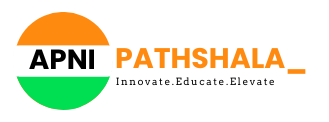7 Popular Alternative Education Models | Benefits & Insights

Education is evolving. Children are no more interested in sitting 8-9 hours in a four walled room and studying. With the arrival of technology and access to smart devices (thanks to covid), traditional classrooms have become increasingly less effective for many students. So, the next best option- alternative education models are gaining popularity. These methods allow children to explore their interests, learn at their own pace, and develop skills that prepare them for a changing world. As the name suggests, I’m sure you must have a fair idea of what alternative education is. But, what about the different models? In this blog, we will explore some of the most popular types of alternative education today, explaining their principles and why they might be the right fit for your child. 1. Montessori Education First we have Montessori education. Developed by Dr. Maria Montessori in the early 1900s, it’s one of the most well-known and established forms of alternative education. This approach prioritizes a child’s natural curiosity and promotes self-directed learning. In a Montessori classroom, students are free to choose their activities, which encourages independence, problem-solving, and creativity. What are the benefits of Montessori Education? Montessori schools are present worldwide, from preschools to high schools, and are a popular choice for parents who value flexibility and a personalized education. 2. Waldorf Education Founded by Rudolf Steiner in 1919, Waldorf education aims to educate the whole child—intellectually, emotionally, and physically. Waldorf schools focus on integrating academic subjects with creative arts like music and painting. The goal is to nurture the development of each student, helping them grow into well-rounded individuals. What are the benefits of Waldorf Education? This approach is ideal for families who believe in developing emotional intelligence, creativity, and a deeper connection with nature and the world around them. 3. Reggio Emilia Approach The Reggio Emilia approach originated in Italy after World War II and is centered on the idea that children are competent learners capable of building their own knowledge. In this model, children are encouraged to explore their interests through projects and inquiry-based learning This makes them active participants in their educational journey. What are the benefits of Reggio Emilia Approach? Reggio Emilia has gained international stature, with schools adopting its principles around the world, from the United States to Australia. 4. Homeschooling Homeschooling is one of the most flexible forms of alternative education. Talking about statistics, the number of homeschooled students in India ranges between 500 000 and 2.7 million. And, that is huge! Parents take on the responsibility of teaching their children at home, allowing them to design the curriculum to suit the child’s individual learning style, interests, and pace. This model offers unparalleled freedom and the ability to adapt the educational experience to fit the child’s needs. What are the benefits of Homeschooling? As homeschooling grows in popularity, especially after the global pandemic, it has become an accessible option for many families who want to take a more hands-on approach to education. 5. Online Learning Next we have the most popular form of alternative education- Online Learning. It might be a scary phrase for some of the parents out there, but it is what it is! The rise of technology has made online learning an increasingly viable option for students worldwide. Online education offers the flexibility of learning from home or anywhere with an internet connection. It includes both formal online schools and informal learning platforms offering specific courses or subjects. What are the benefits of Online Learning? Online learning continues to grow, providing an invaluable option for students who need more flexibility or live in remote areas without easy access to traditional schools. 6. Microschools Microschools are small, independent schools that provide personalized education in a community setting. These schools are typically made up of fewer than 150 students and focus on fostering strong relationships between teachers and students. The approach is highly adaptable, allowing for small group instruction and a focus on individual learning needs. What are the benefits of Microschools? Not talking about ApniPathshala while discussing microschools won’t be a right thing to do. This organisation offers a unique approach to education, closely aligned with the principles of microschools. ApniPathshala empowers both parents and students with the flexibility to create a perfect and personalized educational experience. Whether you’re looking for homeschooling options, online resources, or community-driven educational tools, ApniPathshala ensures that every child has the support they need to succeed in their educational journey. If you want to be a part of the journey of providing quality education to kids in every corner, contact ApniPathshala straight away! 7. Project-Based Learning Last but not the least, we have Project-based learning (PBL). It is an educational approach where students work on a project over an extended period, learning about a subject in-depth while solving real-world problems. This practical, student-driven approach encourages critical thinking, collaboration, and creativity. What are the benefits of Project- Based Learning? As educational systems evolve, alternative learning models provide a variety of options for parents and students seeking a more personalized and holistic approach to learning. From Montessori’s self-directed approach to online learning, these alternative educational models cater to diverse learning styles. This overall helps students work and grow in environments that suit their individual needs. Whether you’re looking for an arts-based approach, flexible learning, or learning in small groups, alternative education provides a range of options to help children reach their full potential. As these models continue to grow in popularity, the future of education looks brighter, more inclusive, and adaptable than ever before. If you wanna be a part of a journey that constantly works for the betterment of kids- urban and rural, join hands with ApniPathshala. Let’s make a change together!
